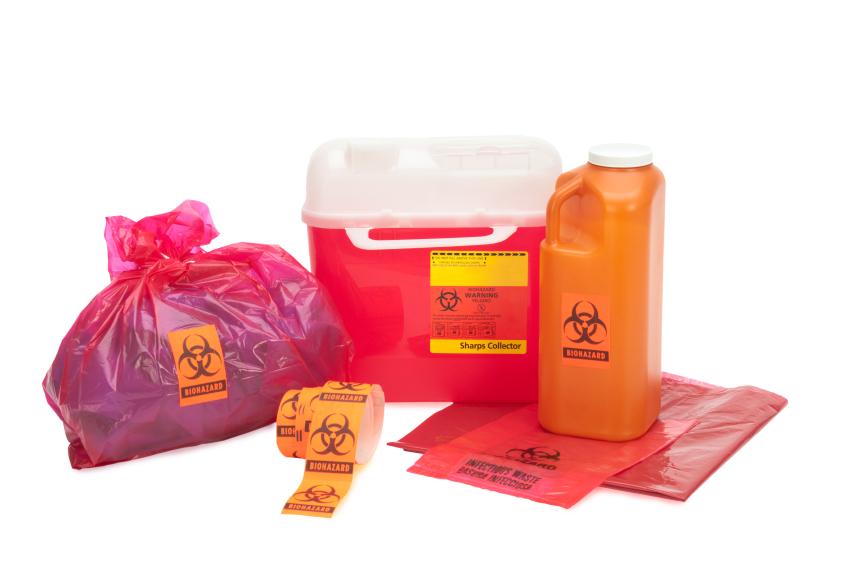Local Commitment: Your Area's Leading Medical Waste Removal Near Me
Local Commitment: Your Area's Leading Medical Waste Removal Near Me
Blog Article
Eco-Friendly Waste Disposal Solutions for a Sustainable Future
Eco-friendly waste disposal options are not plain options however imperatives for a sustainable future. From waste segregation at the resource to power recovery from waste, a variety of strategies exist to deal with the difficulties of waste disposal sensibly.

Waste Segregation at Source
When executing waste segregation at source, people can substantially add to much more efficient recycling and waste monitoring systems. By dividing different sorts of waste such as paper, plastic, glass, and organic products right from the point of disposal, the procedure of reusing ends up being structured, lowering contamination and raising the worth of recyclable products. This method not just saves resources but also minimizes the amount of waste predestined for land fills or incineration.
Correct waste partition at the source is vital for promoting a circular economy where products are recycled, reused, or composted instead of being disposed of as trash. It also helps in the reliable collection and handling of recyclables by waste administration facilities - medical waste removal service. Communities that adopt waste partition at the source frequently experience cost financial savings in waste administration and see a reduction in ecological contamination
Individuals play an essential duty in the success of waste partition initiatives by bearing in mind exactly how they get rid of their waste - click here. Education and learning and recognition campaigns can further encourage the fostering of these methods, leading to an extra lasting and environment-friendly technique to lose disposal
Composting and Organic Waste Monitoring
A reliable approach for handling organic waste and promoting sustainability is through composting. Composting is an all-natural procedure that decays natural materials like food scraps, yard waste, and paper right into nutrient-rich soil amendments. This process not just draws away natural waste from landfills but also generates a beneficial item that can enhance soil, boost plant development, and decrease the need for chemical plant foods.

Implementing composting programs at the family, area, and municipal levels can dramatically reduce the amount of organic waste that finishes up in land fills. Educational initiatives on composting best methods and the advantages of natural waste diversion can better encourage widespread adoption of this green waste management service. click here. Ultimately, composting offers a functional and lasting method to taking care of natural waste while adding to a greener and more sustainable future
Recycling and Upcycling Efforts
One key aspect of advertising eco-friendly waste management techniques is via the execution of reusing and upcycling efforts. Furthermore, recycling aids in the preservation of raw products and minimizes the requirement for conventional waste disposal methods like landfilling and incineration.
Upcycling, on the other hand, is the creative reuse of thrown out things or products to develop products of higher anonymous top quality or worth than the original. By upcycling, much less waste is sent out to garbage dumps, and the demand for brand-new raw products decreases. This lasting method promotes innovation and urges individuals to view waste as a beneficial source.
Both recycling and upcycling campaigns play a crucial duty in promoting a round economic situation and minimizing the environmental influence of waste disposal. click here. By integrating these practices right into daily life, individuals can add to an extra sustainable future for generations to come
Power Healing From Waste

There are several technologies used for power recuperation from waste, consisting of incineration, gasification, and anaerobic food digestion. Anaerobic food digestion breaks down organic waste to create biogas, which can be utilized for warm or electrical power production.

Community-Based Waste Reduction Programs
Utilizing community involvement and participation is crucial in carrying out effective waste reduction programs that enhance energy recuperation initiatives in lasting waste management methods. Community-based waste decrease programs involve collective initiatives between citizens, local companies, and authorities to minimize waste generation and enhance reusing rates. These programs typically consist of educational campaigns to increase understanding concerning responsible waste disposal methods, the relevance of recycling, and the benefits of minimizing waste.
One usual approach is the establishment of neighborhood recycling facilities where residents can leave recyclable materials easily. These facilities advertise reusing by making it easily accessible and offering sources for proper waste sorting. Additionally, area clean-up events and area recycling drives aid impart a feeling of ecological duty and unity amongst residents.
Furthermore, community-based waste reduction programs can include efforts such as composting workshops, recyclable product exchanges, and the promo of lasting techniques in neighborhood companies - medical waste removal service. By including the neighborhood in waste reduction efforts, these programs create a sense of ownership and cumulative duty in the direction of constructing an extra lasting future
Final Thought
To conclude, carrying out eco-friendly waste disposal remedies such as waste partition, composting, reusing, energy healing, and community-based programs is important for a sustainable future. By adopting these techniques, we can lower the ecological effect of waste generation and promote a circular economy. It is important that people, governments, and businesses work together to focus on sustainable waste management techniques to secure our world for future generations.
From waste segregation at the resource to energy recuperation from waste, a wide variety of strategies exist to resolve the difficulties of waste disposal responsibly. Educational campaigns on composting finest practices and the advantages of organic waste diversion can better motivate prevalent fostering of this environmentally friendly waste monitoring service.Effectively utilizing power from waste materials is an essential strategy in sustainable waste monitoring practices.Taking advantage of community interaction and engagement is important in applying effective waste decrease programs that match energy healing campaigns in lasting waste monitoring methods.In conclusion, implementing environment-friendly waste disposal remedies such as waste partition, composting, reusing, power recovery, and community-based programs is essential for a sustainable future.
Report this page